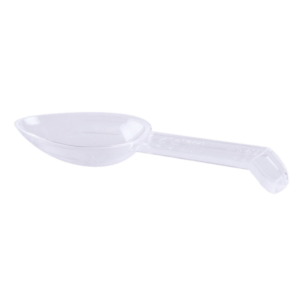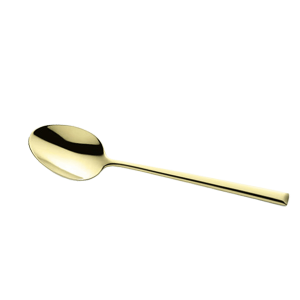
Elevated Cholesterol? This is how Omega-3 Fatty Acids Can Help
Fri 23 May 2025 by Lewis Wiggins
Cholesterol is a word that immediately raises concerns for many people. Justified? Sometimes. A too high cholesterol level, especially of the “bad” LDL type, increases the risk of cardiovascular diseases. But how can you reduce that risk in a natural way? In this blog, we dive deep into the role of omega-3 fatty acids and their relationship with cholesterol. What exactly does it do to your blood lipids, what does science say, and how do you get enough of it?
What is Cholesterol Exactly?
Cholesterol is a fat-like substance that your body needs for various functions: hormone production, cell structure, and the production of bile acids. But there’s a downside: too much “bad” cholesterol (LDL) can accumulate in your blood vessels, resulting in an increased risk of cardiovascular diseases.
There are different types of cholesterol:
- LDL (low-density lipoprotein): increases the risk of atherosclerosis
- HDL (high-density lipoprotein): removes cholesterol, protective
- Triglycerides: fats from food that also pose a risk when in excess
What are Omega-3 Fatty Acids – and why are They so Valuable?
Omega-3 fatty acids are essential polyunsaturated fatty acids. They are not produced by the body and must come from diet or supplements. Omega-3 and cholesterol have an interesting relationship, as omega-3 helps manage cholesterol levels.
The most important forms:
- EPA (eicosapentaenoic acid) – anti-inflammatory, beneficial for heart and blood vessels
- DHA (docosahexaenoic acid) – important for brain, eyes, and cell structure
- ALA (alpha-linolenic acid) – plant-based, still needs to be converted to EPA/DHA
Especially EPA and DHA have clinically proven benefits in improving blood lipid balance. EPA and DHA are mainly found in fatty fish and fish oil. They have a proven positive effect on heart and blood vessels, and are recognized by EFSA (European Food Safety Authority) for:
- maintaining normal blood pressure (at 3 g/day)
- maintaining normal triglyceride levels (at 2 g/day)
- the normal function of the heart (at 250 mg/day)
What Does Science Say about Omega-3 and Cholesterol?
▸ Lowers Triglycerides
Omega-3 supplements with high dosages (>2g/day) can lower triglyceride levels by up to 30%, especially in people with elevated levels. (Balk et al., 2006; Hartweg et al., 2008)
▸ Slightly Increases HDL
Studies show a slight increase in good HDL after long-term omega-3 intake. This is beneficial for removing excess cholesterol and improving omega-3 effects on cholesterol levels. (Mori & Woodman, 2006)
▸ Works Anti-Inflammatory
Atherosclerosis is not just a fat problem, but also an inflammatory process. Omega-3 helps to inhibit systemic inflammation, keeping the vessel wall healthier and reducing cholesterol problems. (Calder, 2010)
▸ Works Synergistically with other Substances
Omega-3 works well together with phytoestrogens and antioxidants, especially in postmenopausal women. Phytoestrogens are substances from plants (such as soy, flaxseed, and red clover) that can mimic an estrogenic effect as synergy with omega-3 for improved cholesterol control. (Kurzer, 2002)
How Do You get Enough Omega-3?
▸ Dietary Sources
- Fatty fish such as salmon, herring, mackerel, and sardines
- Plant sources such as flaxseed and walnuts (contain ALA)
▸ Supplements
For those who eat little fish or have elevated blood lipids, a supplement can be a valuable addition. Choose a product that:
- Is pure (free from heavy metals)
- Contains sufficient EPA and DHA (preferably >500 mg per day)
Möller’s Omega-3 is a reliable choice with high-quality fish oil from wild-caught cod, rich in EPA, DHA, and vitamin D. It helps maintain cholesterol levels in balance.
Healthy Living with Cholesterol: Practical Tips
- Exercise daily (minimum 30 minutes)
- Eat whole grain products, vegetables, and fatty fish
- Limit sugar, saturated fat, and alcohol
- Quit smoking
- Consider supplementation with omega-3 and possibly phytoestrogens
Omega-3 fatty acids are not a miracle cure, but they form an important link in a healthy lifestyle. Especially if your cholesterol or triglycerides are too high, omega-3, along with a healthy diet, exercise, and quitting smoking, can be a valuable addition.
Möller’s Omega-3 – A Spoonful of Life
Sources:
- Balk, E. M., et al. (2006). “Effects of omega-3 fatty acids on serum markers of cardiovascular disease risk: a systematic review.” Atherosclerosis, 189(1), 19–30.
- Mori, T. A., & Woodman, R. J. (2006). “The independent effects of eicosapentaenoic acid and docosahexaenoic acid on cardiovascular risk factors in humans.” Curr Opin Clin Nutr Metab Care, 9(2), 95–104.
- Hartweg, J., et al. (2008). “Meta-analysis of the effects of n-3 polyunsaturated fatty acids on lipoproteins and markers of inflammation in type 2 diabetes.” Diabetologia, 51(9), 1529–1538.
- Calder, P. C. (2010). “Omega-3 fatty acids and inflammatory processes: from molecules to man.” J Nutr, 140(3), 573S–578S.
- Kurzer, M. S. (2002). “Phytoestrogen supplementation and cardiovascular risk factors in postmenopausal women.” J Nutr, 132(3), 570S–573S.
- EFSA Journal (2012). “Scientific Opinion on the substantiation of health claims related to EPA and DHA and maintenance of normal blood pressure, triglyceride levels and normal function of the heart (ID 484, 487, 488, 489, 490, 491, 494).”




